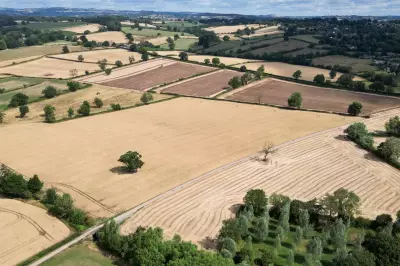
The Environment Agency has issued a stark warning that hosepipe bans across England are likely to remain in force throughout the winter months, as the nation grapples with a severe and persistent drought.
Meteorological Forecast Points to Dry Winter
This concerning prediction follows a Met Office forecast indicating a higher probability of dry conditions from November to January. Will Lang, the chief meteorologist at the Met Office, clarified the situation, stating, "While it’s not possible to definitively forecast weather for the next three months, the chances of a dry period are higher than normal."
Such a scenario would exacerbate the already critical drought levels next year, placing significant strain on the natural environment and threatening crop yields. The current situation remains precarious despite recent rain, following the driest spring in 132 years and the hottest summer since records began in 1884, which featured four intense heatwaves.
Severe Impacts on Water, Farming and Wildlife
In August, the National Drought Group officially declared a "nationally significant water shortfall" in England. A drought is only considered over when water supplies are fully replenished, a milestone looking increasingly distant after eight out of the last ten months recorded below-average rainfall.
The crisis has tangible consequences:
- Eight million people in Yorkshire, Thames Valley, Sussex, and Kent remain subject to hosepipe restrictions.
- Total reservoir stocks for England stood at just 65.8% for the period ending 4 November, well below the average of 77.4%.
- The Canal & River Trust was forced to shut down 20% of its network over the summer due to lack of water.
Farmers have felt the impact directly, with harvests suffering and concerns growing about feed for livestock after poor grass growth. The drought has also severely damaged ecosystems, affecting the breeding of wetland birds, great crested newts, and natterjack toads, disrupting the migration of eels and salmon, and placing ancient trees under severe stress.
Urgent Calls for Public Action and Government Response
Helen Wakeham, director of water at the Environment Agency, delivered a sobering message: "There will be a drought next year, unless we get sustained rainfall through the winter. The severity of that drought will depend both on the weather and the actions we take." She urged the public to continue their efficient water use, even during winter rainfall, to protect wildlife, rivers, and public supplies.
Echoing these concerns, Water Minister Emma Hardy stated that the prolonged dry weather "continues to pose risks to public water supplies, farming, and the environment." She outlined the government's strategy, which includes building nine new reservoirs and investing in new pipes to reduce leakage, as part of a long-term plan to bolster the UK's water resilience against the increasing frequency of droughts and floods driven by climate change.





